Peanut butter is known the world over and is one of the most popular and versatile spreads. It’s important to know the different types of peanut butter and how to eat them as part of a healthy diet.
It’s made simply by blending roasted peanuts into a liquid. For many people the taste and texture of peanut butter is amazing.
Peanut butter is relativity inexpensive and contains a high amount of protein and fat. In this article I’ll explore using an evidence-based approach if peanut butter is good or bad for your health. Answering the question: is peanut butter healthy?
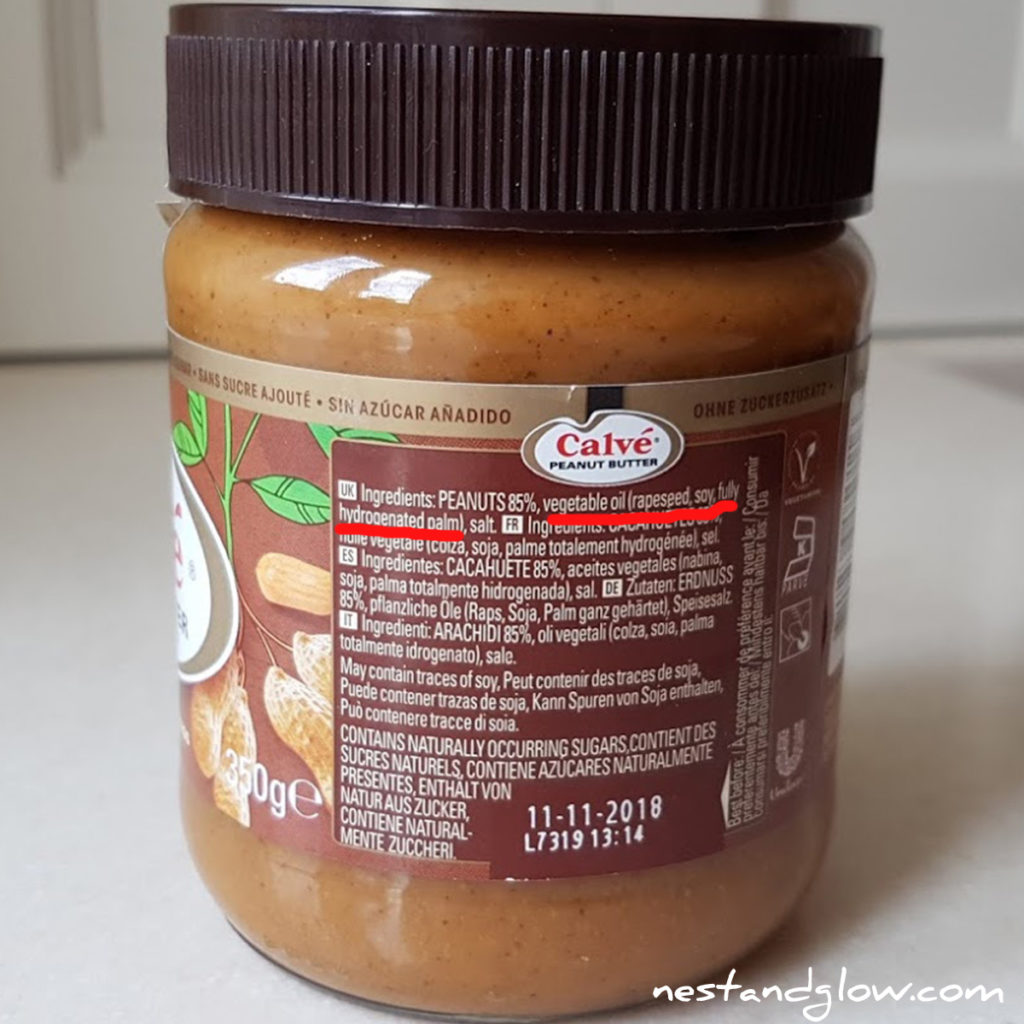
Not All Peanut Butters Are Created Equal
Most peanut butter in the shops is not pure. Manufacturers often add unhealthy oils, salt, sugar, flavourings, artificial sweeteners and even trans fats.
Unpure peanut butter reduces the cost to the manufacturer, yields higher profits, gives a longer shelf life and enhances the flavour for some peoples tastebuds. Sugar, sweeteners and trans fats are all detrimental to our health.
Real peanut butter should contain only peanuts with no added oil or sugar, a pinch of salt is the only acceptable addition.
Pure peanut butter is more expensive, but like so many things in life you get what you pay for and if you’re concerned with health it’s worthwhile avoiding the junk peanut butter and only buying pure 100%. The healthiest peanut butter is one that’s 100% peanuts with nothing else.
Often pure peanut butter contains the skins – you can tell as it will have flakes of red or brown. These skins have been shown to be high in antioxidants and make peanut butter more nutritious.
Only pure peanut butter is a low FODMAP food. Pure peanut butter closeup:
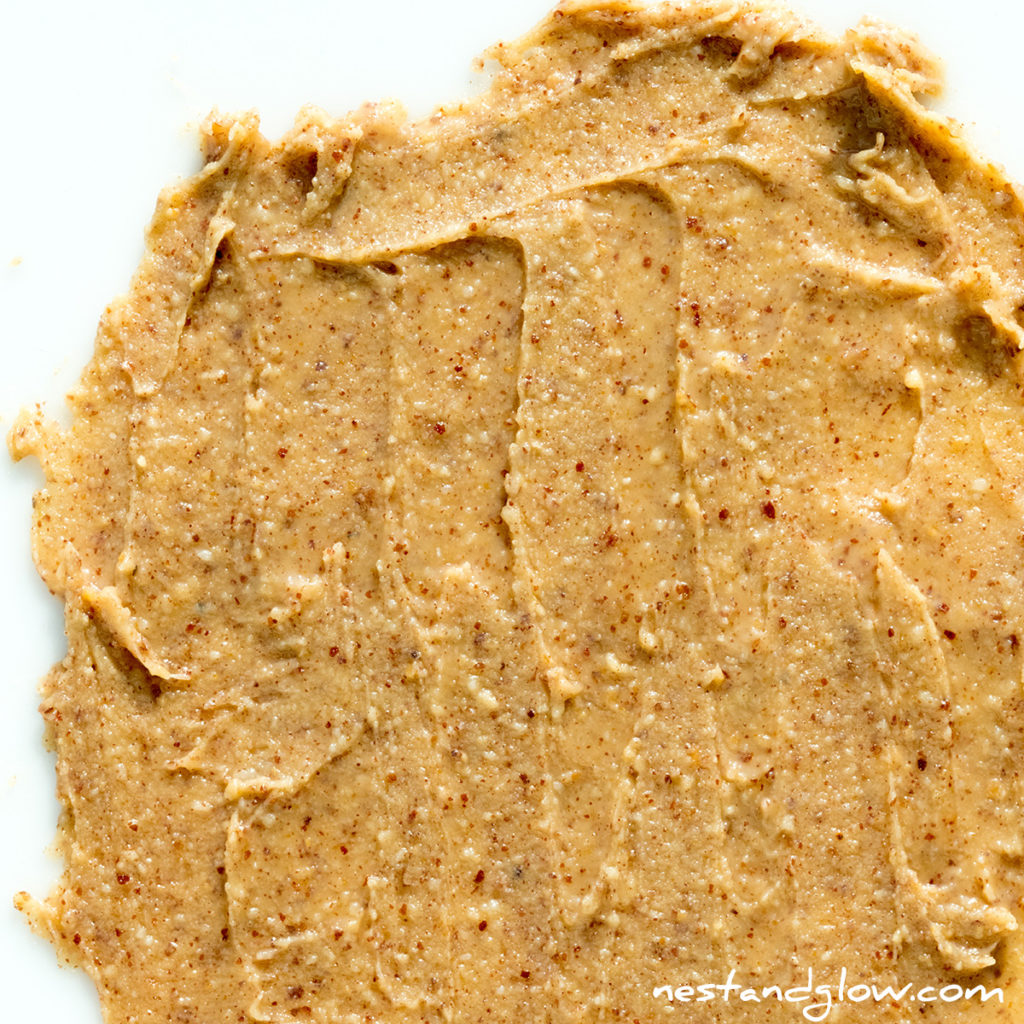
Peanut Butter Nutrition
Peanut butter is about 50% fat, 25% protein and 20% carbohydrates by weight.
It’s a great protein source but as it doesn’t contain every amino acid it’s not a complete protein. That isn’t an issue as long as you have a varied diet and don’t just rely on peanuts alone for protein.
Peanuts are a legume as they grow underground in pods making them not true nuts.
Peanut butter is a nutritious food containing many vitamins and minerals including E, B3, B6, magnesium, iron, copper and manganese.
However as peanuts are high calorie with 1 tbsp containing 94 calories, it’s not nearly as nutritious as fruit or vegetables per calorie or serving. Natural peanut butter is low carb and suitable for a ketogenic diet.
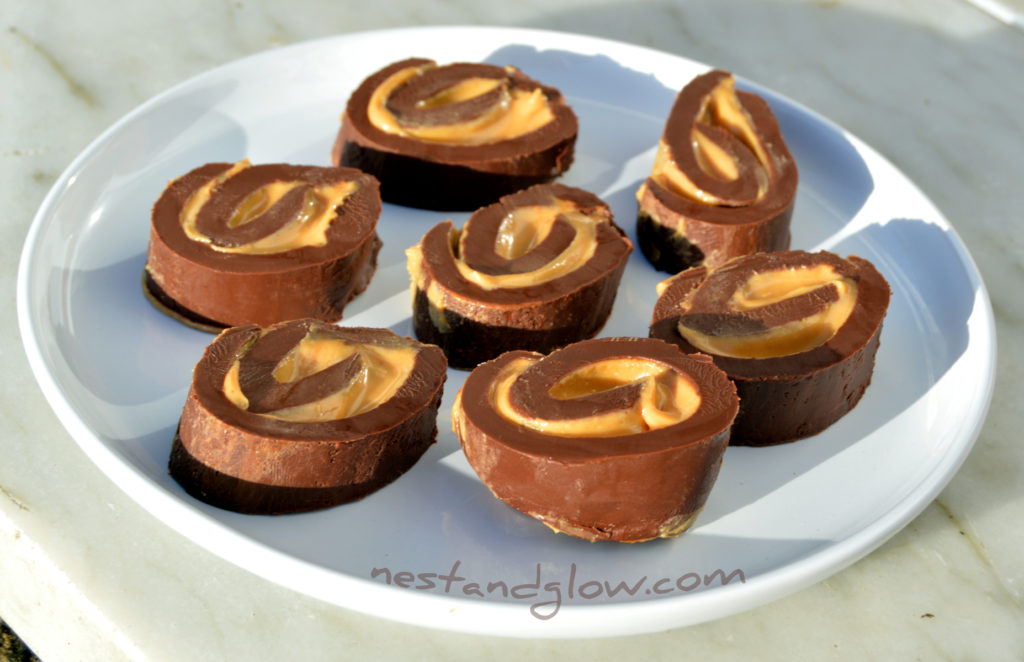
Aflatoxins In Peanut Butter
These toxins are found in peanut butter and are produced by fungi as the peanuts grow.
Short term exposure to the aflatoxins in peanut butter seems to not affect humans much. But there’s little research into the long term risk.
Diets high in aflatoxins have shown links to liver cancer and impaired child growth. The same toxins can be found on other crops including corn and tree nuts.
However when peanuts are roasted to make peanut butter up to 90% of these toxins are destroyed.
The levels of aflatoxins allowed in foods are set by the EU so that peanut butter on the shelf is no immediate danger.
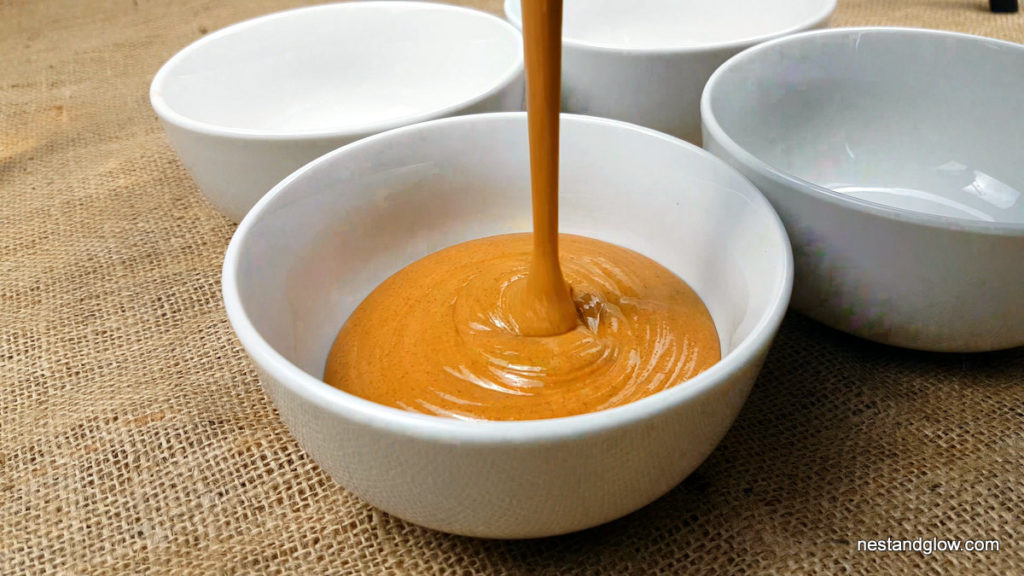
Hi Oleic Peanut Butter
There’s a new variety of hi-oleic peanuts that are now being sold that claim to be healthier.
Traditional peanuts and peanut butter made from them are about 50% oleic acid and high oleic peanuts are 70%. Oleic acid is a type of monounsaturated fatty acid that’s also found in olive oil and tree nuts.
High oleic peanuts are lower in the omega-6 linoleic acid.
Manufacturers of high oleic peanut butter claim that they help reduce monosaturated fats. There’s still ongoing research as to the importance of omega 3, 6 and 9 fatty acids and the correct ratio that’s optimal for health.
There’s limited unbiased research into the benefits of high oleic peanuts, but they may be a useful addition to add variation in a diet.
Final Worlds On Peanut Butter and Health
Yes peanut butter is a good source of nutrition but it’s not all good. Follow these tips to enjoy peanut butter as part of a healthy diet.
- Only consume pure peanut butter without additives.
- Don’t rely on peanut butter alone as a protein source or for a large part of your diet.
- Peanut butter does contain a toxin that can have a harmful effect on the body, so it’s best consumed in moderation as part of a varied diet.
- Small amounts of peanut butter occasionally is unlikely to cause any harm, but it shouldn’t be an everyday food.
- Keep reading for alternatives to peanut butter – as always the best diet advice is to eat a varied diet.
Healthy Alternatives To Peanut Butter
There’s lots of other nut and seed butter varieties that you can add to your diet that taste amazing and can be used as a direct replacement for peanut butter. All recipes are made from just whole food ingredients and are free of oil, dairy, sugar and junk.
Cashew Butter
Pure raw cashews make an amazing nut butter.
Sprouted Almond Butter
Almonds are soaked and sprouted in salted water to make one of the healthiest nut butters out there. Also known as activated almond butter.
Sunflower Seed Cookie Butter
All the taste of cookies in a raw spreadable healthy butter.
Coconut Butter
A great healthy alternative to coconut oil is this butter that is made from the whole coconut without anything taken away.
Peanut Butter Recipes
Try some of my healthy and vegan peanut butter recipes.
All are free of dairy, flour, unhealthy oils, eggs and refined sugar.
Healthy peanut butter oat cookies made from just 3 whole food ingredients. These vegan cookies are sweetened naturally with just bananas and are full of goodness.
Any nut butter can be used instead of peanut butter if you prefer. These cookies can be made from gluten free oats. This cookie recipe is suitable for vegans as its free of dairy, eggs and butter.
Healthy vegan snickers ice cream bars that are made from wholefood ingredients and bursting with nutrition. High in heart healthy fats and protein. Easy to make and can use any nut or seed butter for the healthy caramel layer.
Healthy chickpea blondies made without peanut butter that are vegan and high in protein. These Chocolate Chip Almond Chickpea Blondies are really easy to make, taste great and are free of eggs/milk/butter and flour. A blondie is just a lighter, in colour, brownie! Some people call these chickpea brownies.
These homemade salted caramel snickers bars are easy to make, dairy free and delicious. This is a great recipe to make with children as it doesn't involve anything hot and you need to use your fingers. Vegan snickers recipe is loaded with nutrition and goodness making a great healthy candy.

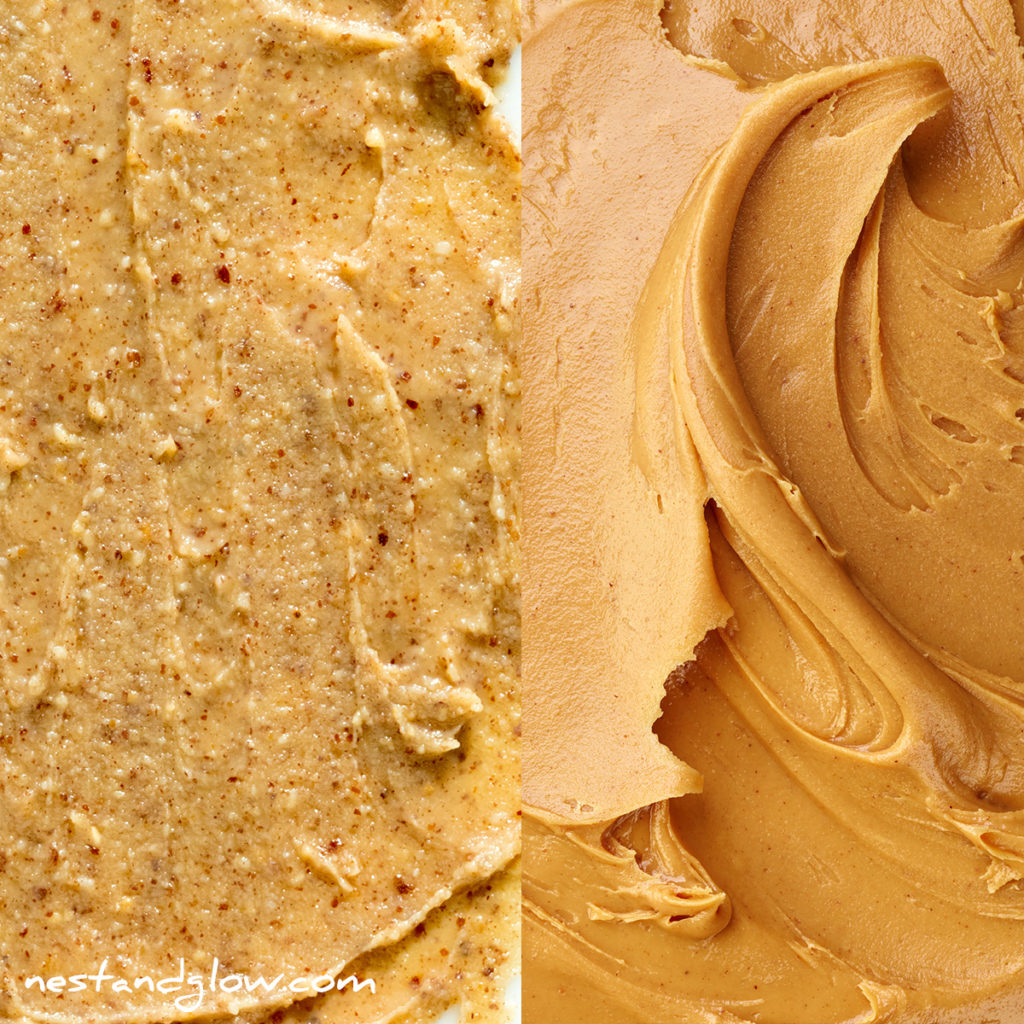
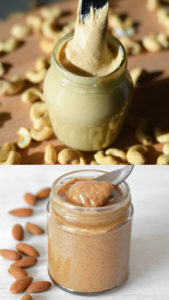
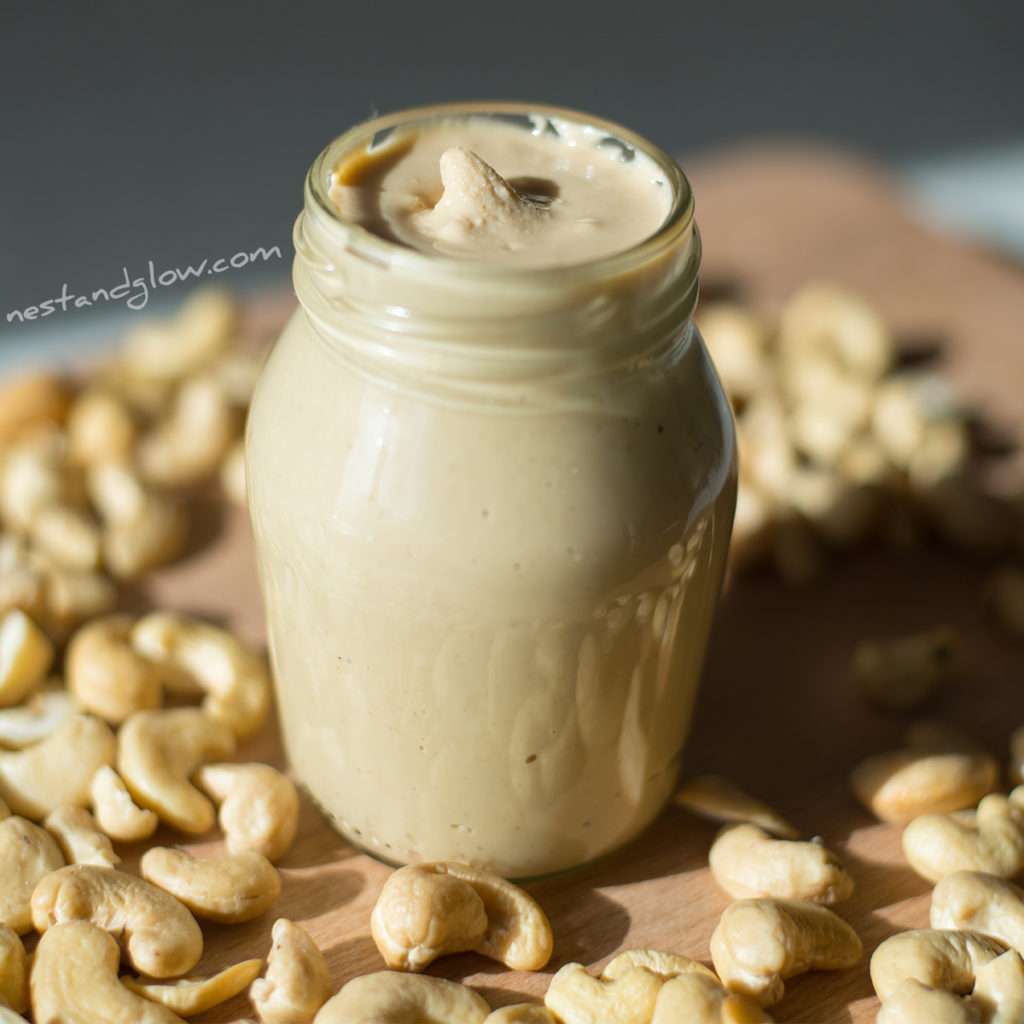
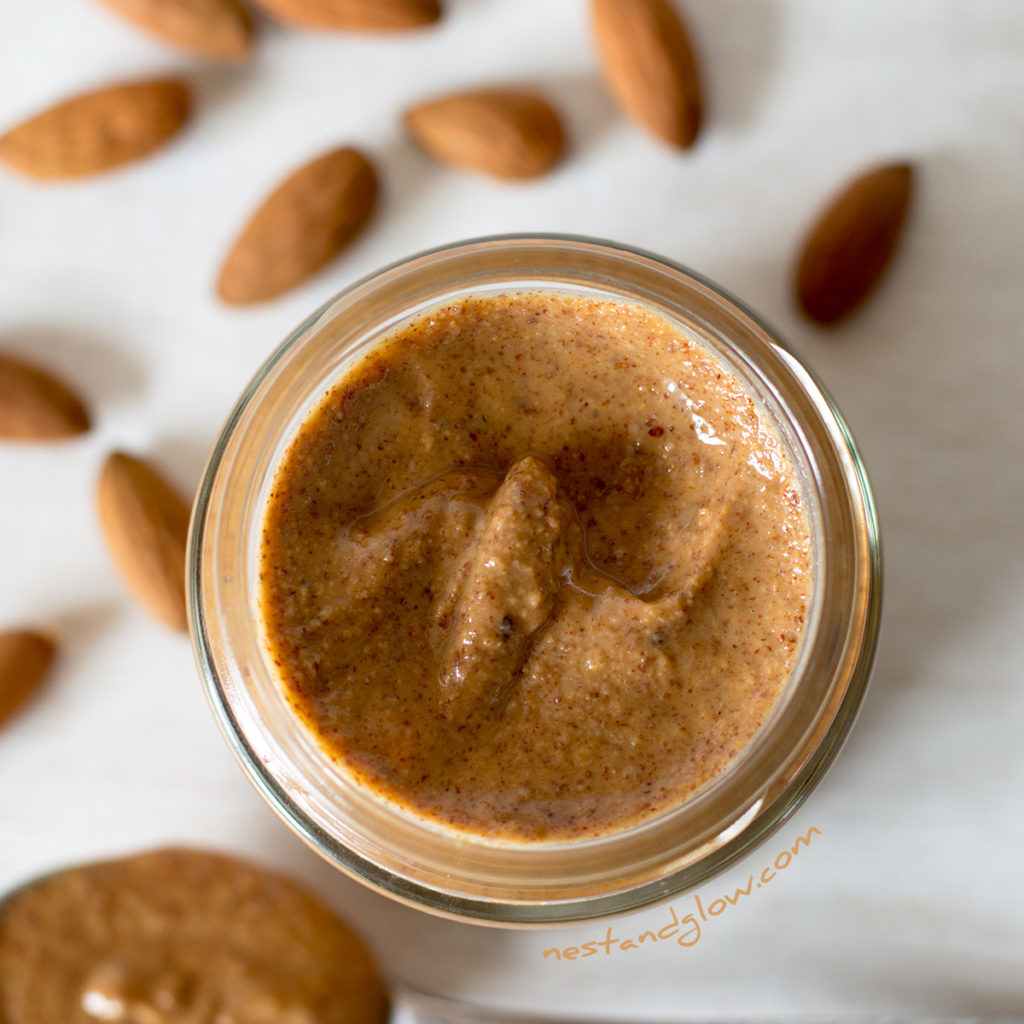
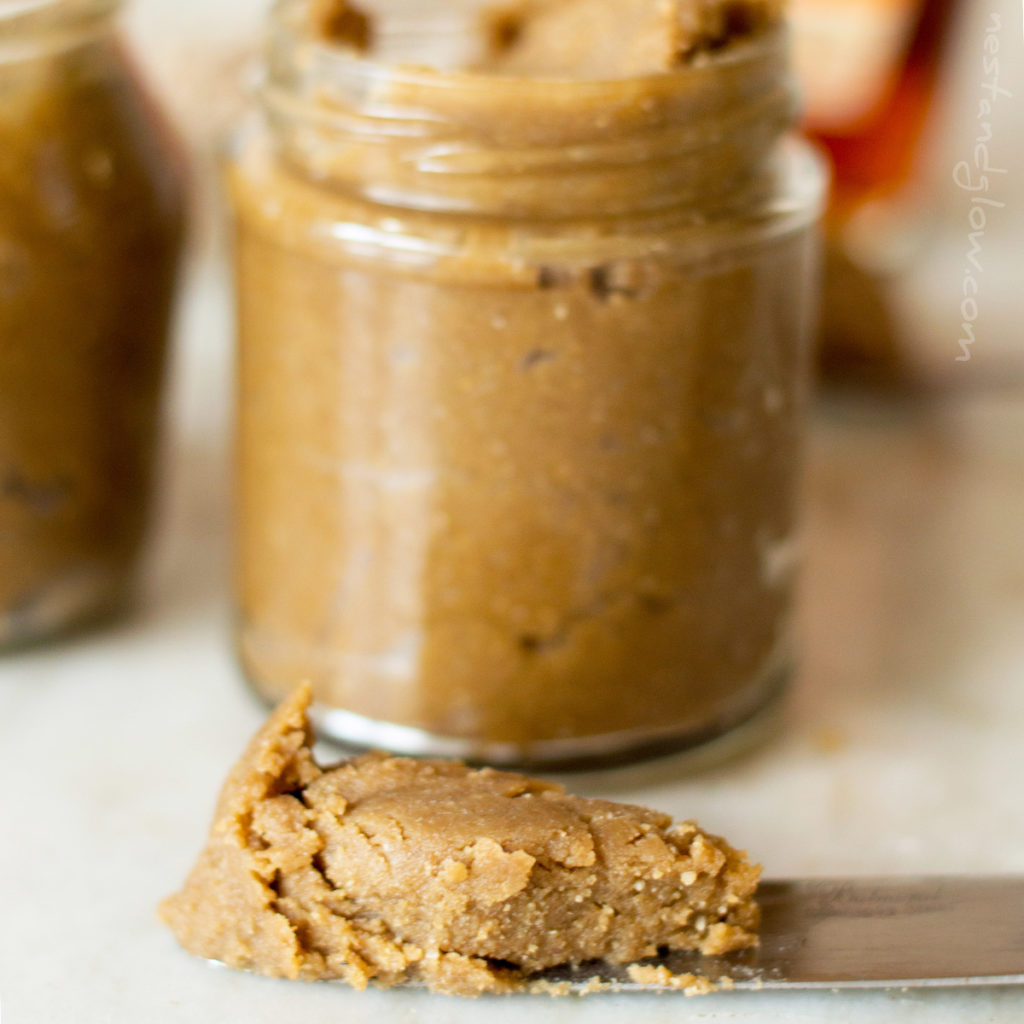
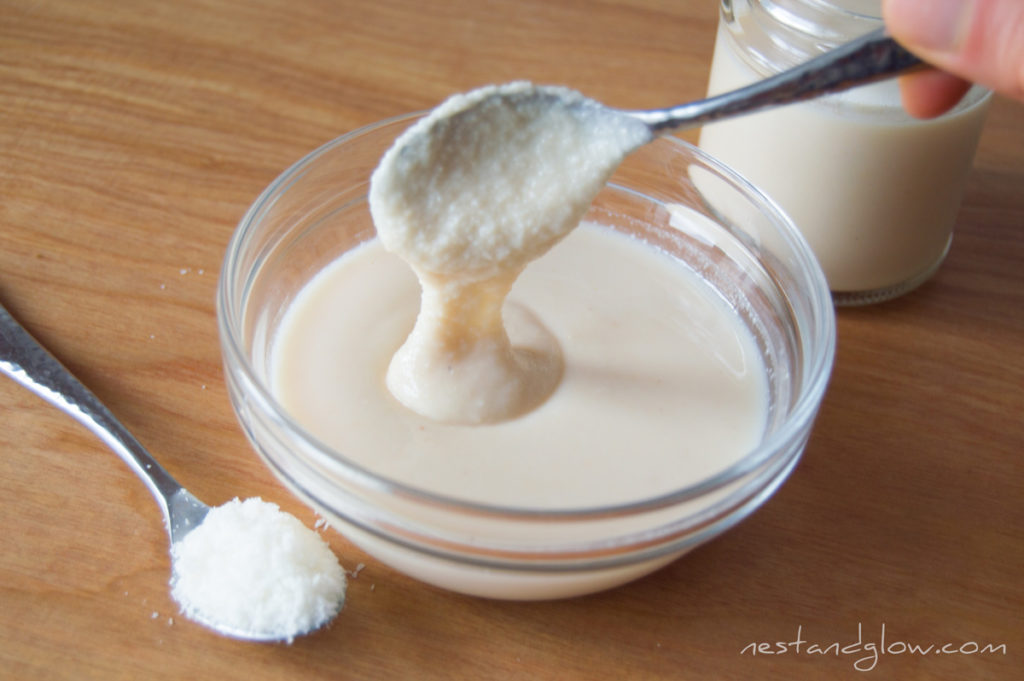
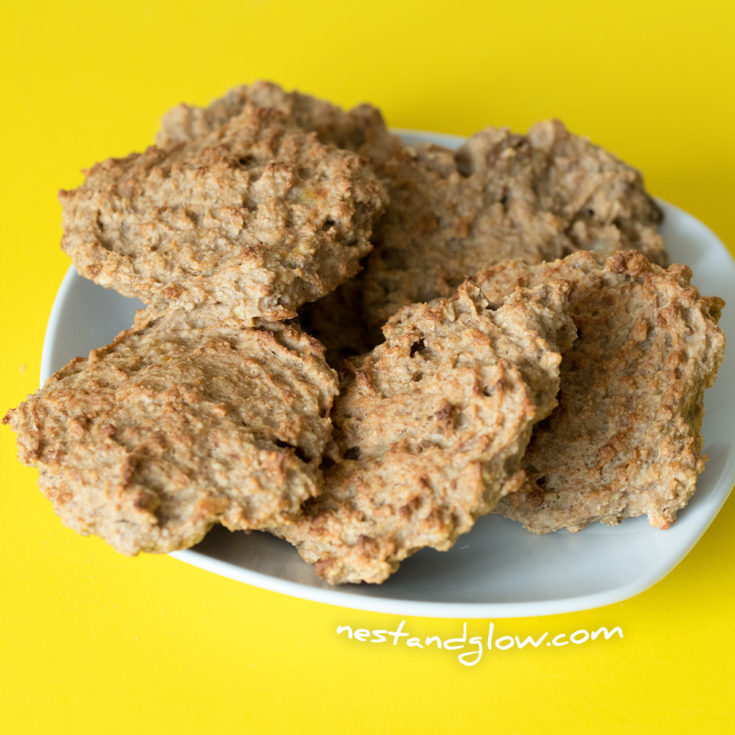
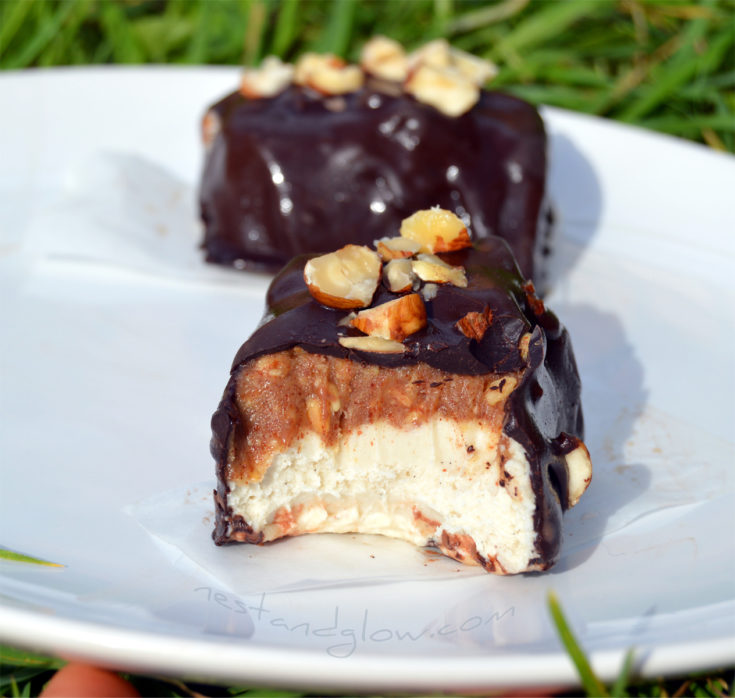
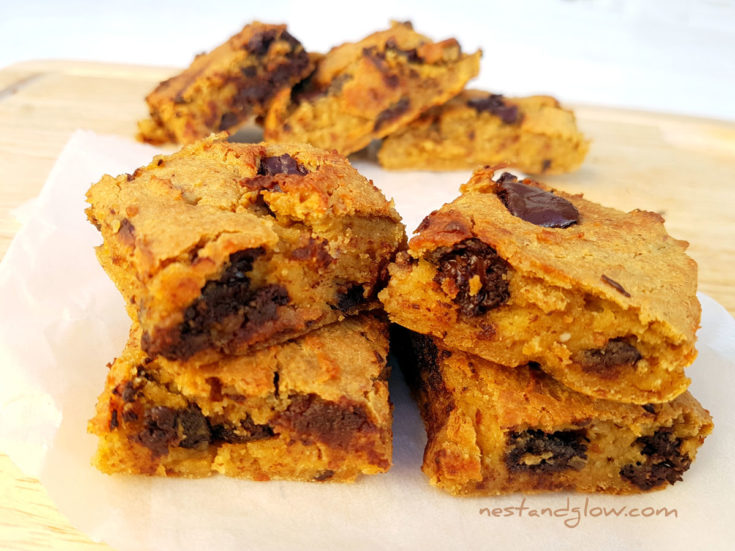
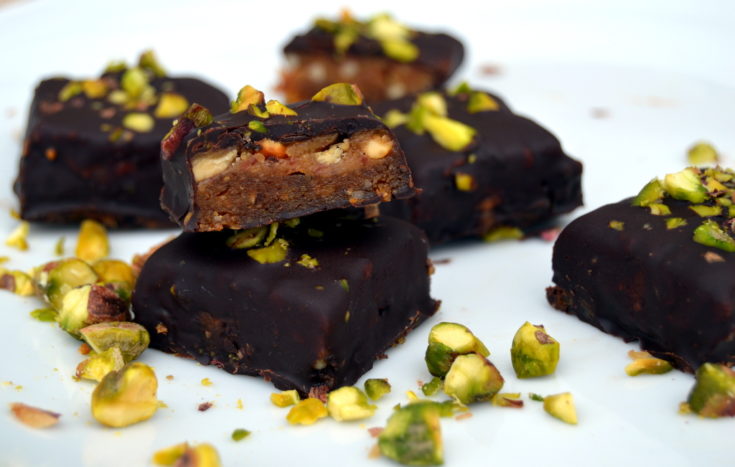
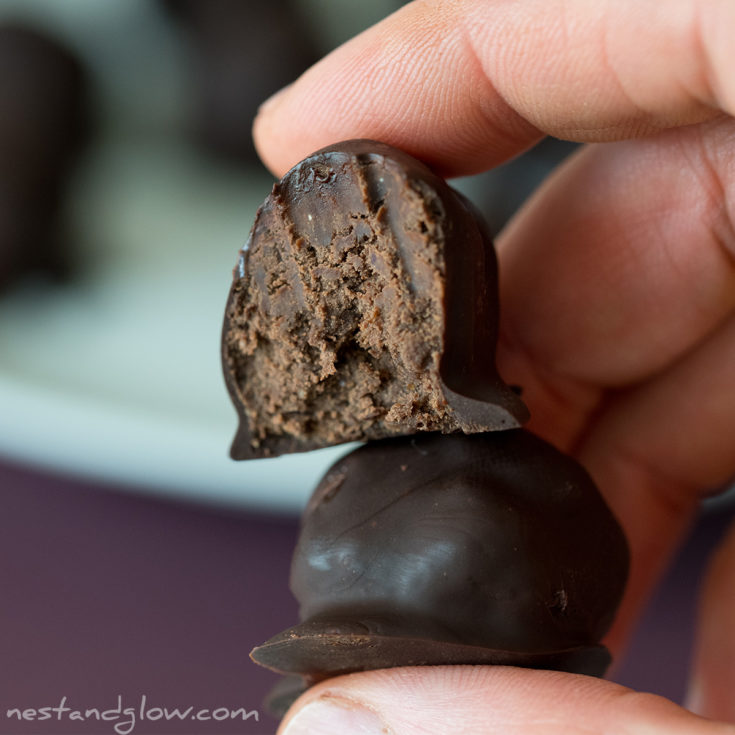
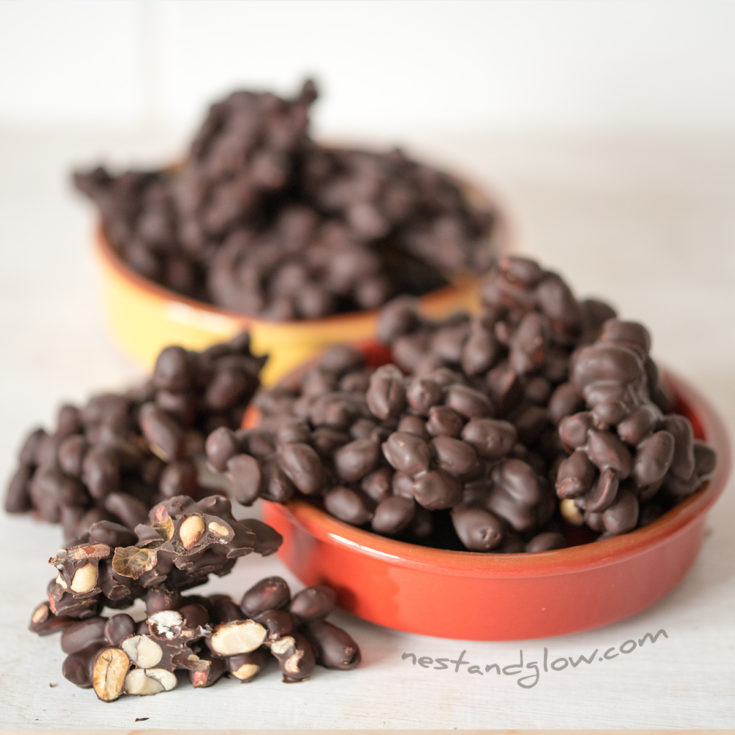
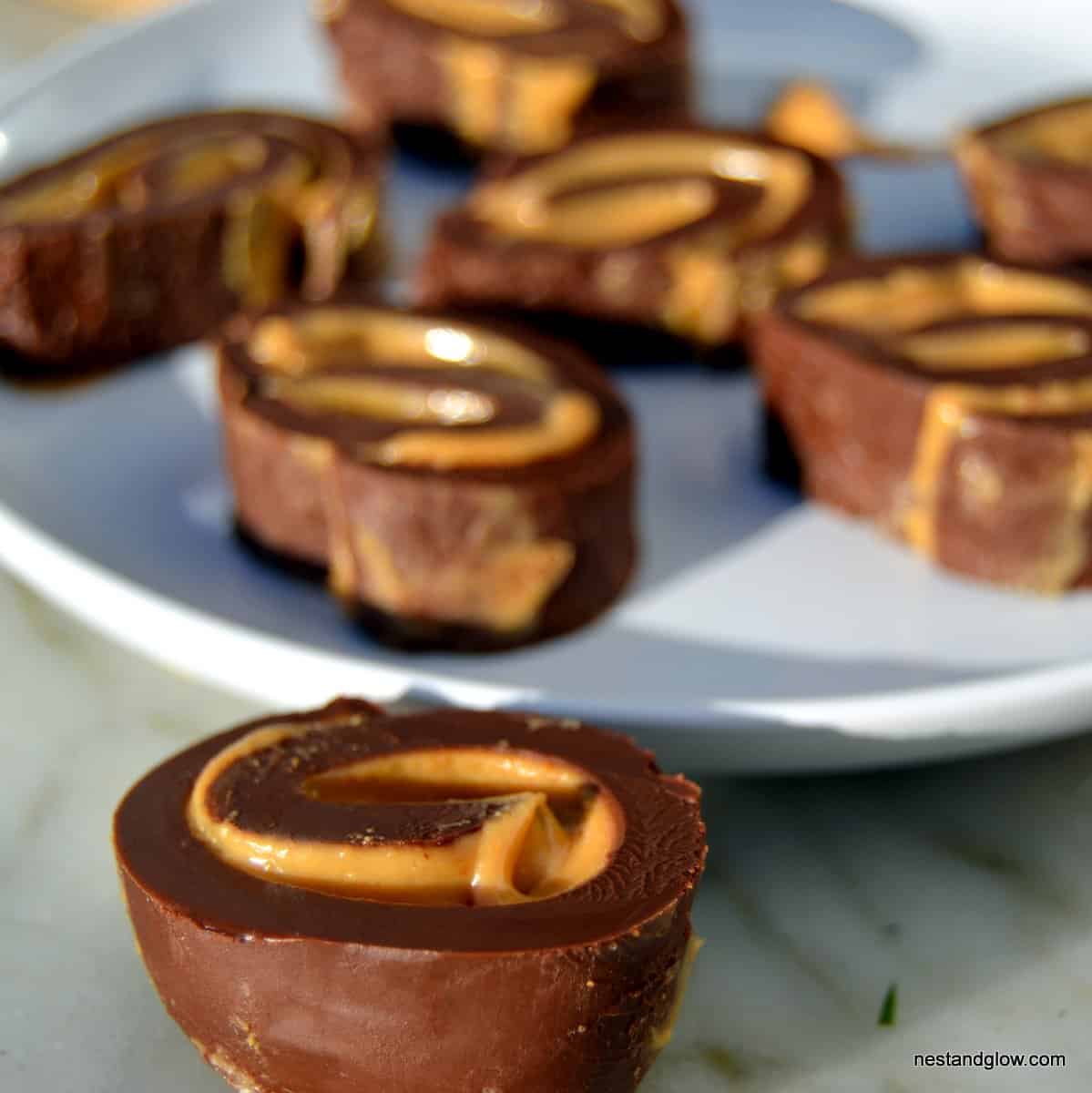
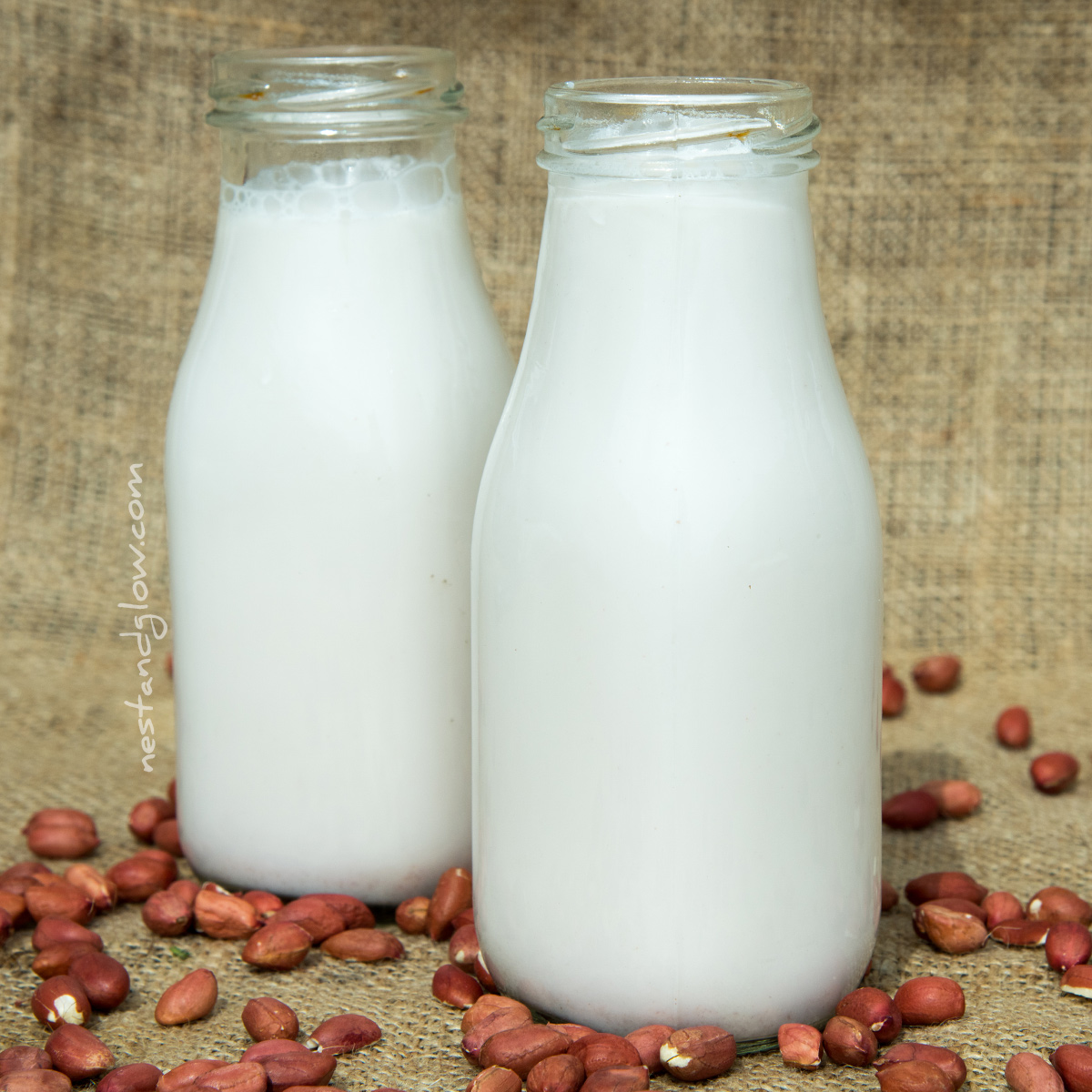
This article did not give any reasons why peanut butter “shouldn’t be an everyday food.”
Did you read the part about aflatoxins?
Did *you* read the part where roasting destroys 90% of aflotoxins and where it then explicitly says peanut butter is safe?
Just don’t eat peanut butter as your only source of protein.
Did you?
“However when peanuts are roasted to make peanut butter up to 90% of these toxins are destroyed.”
Lol you even said 90% of the alfatoxins are destroyed when the peanuts are roasted.
Peanut butter is not good for you. Even the real stuff has so much fat and calories it should only be eaten occasionally. Everyone over eats the portions (2tbls) not understanding they are 50% FAT. Elvis ate this garbage everyday. Died with a plugged colon literally full of pb. Not a healthy nut to consume.
Elvis had white matter in his colon, said to have been undigested pills, not peanut butter. If you are going to talk about him, at least know what you are talking about or don’t talk at all.
What you didn’t say is Elvis ate this in fried greese every time I have this very often and love it it’s healthier then eating steak and red meat so you don’t know what you’re talking about on is very good and healthy for you
Waste of my time reading this. I’m just gonna go eat some fucking peanut butter.
Have you heard of China Study? The biggest scale study in to causes of cancer revealed that Chinese children from better off families had increased occurrence of liver cancer because they could afford eating peanut butter everyday, with the toxin causing the disease.
What about sesame butter or tahini? Is it good for you. ?
If it’s pure then yes, although it’s best to eat a wide variety and not just one nut or seed butter 🙂
What a bunch of horseshit. Where did you get your food science degree from?
Which part in particular? I’ve linked to studies that back up the points as I’m all about taking an evidence based approach.
Ignore the haters – I had peanut butter on toast with banana slices every day for the past year or two and definitely noticed I was feeling bloated a lot of the time, I didn’t realise that there was a risk for toxins and how processed it was.
I will be switching to porridge from now on, thanks for the informative article, I learned a lot and will make a better decision going forward.
Keep up the great work, hopefully people will make smarter and healthier decisions after reading the facts, rather than emotional outbursts and tantrums.
Everyone knows that eating chocolate everyday is not a good idea, the same goes for peanut butter and a whole bunch of other foods that we’ve been led to believe are healthy, but actually aren’t, well in their processed retail form.
Nice reply Tim, real informative about what you take issue with.
I’ve been eating peanut but 3 times per day for 30 years. Mostly Jiff. I’m Currently running 2:26 for the marathon at 42 years old… the article is silly…
When was your last cholesterol test if I may ask?? Guaranteed it’s too high if your eating that much a day. Runner or not that will kill your heart. Until you have your blood work you won’t know. Suggest you do.
There’s no cholesterol in peanut butter.
What happens if you do eat peanut butter daily?
Check out the links above, the toxins have been linked to some cancers.
My favorite peanut butter is Smucker’s Organic Natural Peanut butter. The ingredients: Organic roasted peanuts: contains 1% or less of salt. I spread it in my instant pot steamed sweet potato.
Sounds like a good brand!
Roger,
My daughter and I love the organic Smuckers as well!! Putting PB on Sweet Potato sounds Delicious!
Smuckers taste is horrible unfortunately, as compared to Skippys are the others that are less healthy.
I’ll stick with my good old Jiff Peanut Butter.
*Hopefully. Why are you publishing without proof reading?
Thanks for that all fixed, I’m just one dyslexic guy trying to do my best. The article went through many revisions, and I do sometimes miss a typo.
Okay, then here’s one of my all-time favourites: the words ‘everyday’ and “every day” have different meanings.
It should be pointed out that, contrary to what is stated here, fully hydrogenated oil does NOT contain trans fat. Only partially hydrogenated oil contains transfat. The ingredients shows that the jar pictured does indeed contain only fully hydrogenated palm oil, and so the caption indicating the peanut butter contains trans fat is false.
Thanks for that, I’ll remove the bit saying trans from the photo caption. Although fully hydrogenated palm oil is still not considered healthy, only slightly less bad than partially hydrogenated.
Very informative and up to date. I thought I was buying pure unaltered peanut butter, but apparently not, as I don’t think I have had any with the skin in it. Great to know.
Thanks glad you liked it, I’m sure if it says on the back of the packet that its pure peanuts it will be. But they must have been skinned. As the skins have goodness I do try to buy brands that include the skins.
I found this article informative and interesting. As my farming 93 year young Grammy always said, you can wash the veggies with the garden hose but don’t you dare take that skin off! That’s we’re all the good stuff is… This was in the 60’s I guess she was right.
Yep totally agree. So much good stuff in the skin or next to the skin. I rarely peal any fruit or veggies, and the odd time I do I put it in the freezer to make stock out of it. Some veggies like carrots and potatoes are always pressure washed before they are put in the shops and that loses some of the goodness. Health does appear to have peaked several decades ago.
!Howbout SKippy peanut Butter ?
Check the back of the packet and that it’s just peanuts
Skippy, Jif, and the rest all contain bad oils and extra sugar in them to make it more addictive. That is why it’s your fav. It’s got the most addictive thing in it.. Sugar… Look for Adams peanut butter.. That’s all it is…
Thanks for the info.
A few typos.
Ah thanks, can help and say what they were?
Fully Hydrogenated oils do not contain Trans fats. Only Partially Hydrogenated oils do.
I make PB hot chocolate every nite 1 cup almond coconut milk 1T spoon unsweet cocoa powder 1T heaping PB blend n microwave
Micro wave bad idea
Microwaves do not alter nutritional content. Stop spreading nonsense.
I appreciate your respectful responses to otherwise rude comments. Healthy or not too much of anything isn’t good. A well balanced diet is always best. We all should try to be better informed about what is in our food as there are many deceiving additives and false claims. The FDA is not our friends.
Does roasting the peanuts take away any of the nutritional value?
Peanut butter is not known the world over, nor is it one of the most popular spreads. Peanut butter is mainly an American spread that gets imported into the UK and Ireland but is extraordinarily difficult to get anywhere else. I’ve packed it in many a checked bag to bring as a gift for ex-pat friends.
This article was about what CAN be in various peanut butters, what to look for, and which options are healthIER. These claims were backed up with scientific evidence; in which he also listed for your viewing. If you enjoy your current peanut butter and don’t care what could be in it, why did you even click on the article? Thanks for your informative article sir. I enjoyed reading the comments as well. You are very professional and considerate. As for the few grammar mistakes that some of you mentioned previously, EVERY writer makes mistakes. Once you reread something so many times, the words start to blend and blur. At least it was small accidental errors and not illiterate or incomprehensible like the majority of today’s society when they write; thanks to mainstream media. I think this shows how picky and easily offended the world is today. A simple thank you for this information would have sufficed. So thank you, Sir. Thank you for taking your time to find legit, proven information; to help others make a healthier choice; for which you did not have to do.
Thanks for your understanding Lisa, I’m glad the article was clear for you and you understand why it was written. Thanks for taking the time to comment, it’s very useful and helpful.
Thanks for the good article. Aflatoxin B is a potent liver carcinogen. US-grown Valencia peanuts have lower levels of aflatoxins, because they are usually grown in drier parts of the country that are less conducive to to molds and fungi. Costco carries an excellent, pure, organic peanut butter made with US-grown Valencias. I’m glad I found it. Others might also like to know about this.
Great information, thanks for sharing Vive
I agree with Lisa Jackson! Thank you for the information. I didn’t know to look for the skins in peanut butter. Also I was unaware of the aflatoxins. A friend and I were just discussing peanut butter so now you have helped both of us! Thanks again.
Please don’t continue to perpetuate the “complete protein” myth as started and retracted by Frances Moore Lappé/“Diet for a Small Planet.” Every whole plant food possesses each of the amino acids that can exist in food. The USDA nutrient/food database shows this. Sure, the amino acid profile isn’t the same as flesh, but if you were to eat only peanuts in adequate caloric intake for the day, all minimum amino acid requirements would be met/exceeded. It cannot be said they are an incomplete protein, and even if that were true, the notion of needing to combine foods to make a complete protein is a myth. You just would eat a variety of foods in the day and the liver stores amino acids to make whatever proteins the body needs.
With cooking/roasting of peanuts, there is risk of degradation of the polyunsaturated fatty acids that are so vulnerable to oxidation. Peanut butter is made from roasted peanuts. It is a recreational food and very high in omega-6.
Hi Kelli, I’m most certainly not trying to spread the complete protein myth – quite the opposite. I’ve written a whole article on this and linked in the above article here – https://www.nestandglow.com/life/complete-protein-vegan . But the truth is peanuts aren’t a complete protein as they don’t contain every essential amino acid and are very low in methionine. This isn’t an issue just as long as you eat other plant foods and don’t rely on peanuts as the main source of protein. I say this because I’ve known people eating a large number of peanuts for the protein and getting not much elsewhere – this isn’t good. The whole point of this article is to be aware of the importance of eating a balanced diet with a wide variety of foods.
I absolutely love the nest and glow web site. I bought the recipe book. So many lovely recipes and easy to follow. I sent a copy to my daughter in the States the other day.
THanks so much that’s great to hear! Amazing thanks for buying my book and hope your daughter likes it
I LOVE SMUCKERS NATURAL PEANUT BUTTER & I EAT AT LEAST 4 TBLESP. A DAY. I WILL CUT BACK AFTER THIS INFO. NO NEED TO HAVE LIVER ISSUES OVER SOMETHING LIKE PB
“Oleic acid is a type of omega-3 monosaturated fat that’s also found in olive oil and tree nuts.”
Actually oleic acid is omega-9 not omega-3.
Unfortunately a basic error like this in a piece calls into question the veracity of all the other assertions made.
Hi there, thanks for spoting the typo it should be linoleic. I don’t think one typo undermines a whole article – sadly I don’t have the reasorced for a proofreader and even big organisations with funds for that still have similar typos that slip through, but have fixed it now.
I only buy freshly ground peanut butter from Whole Foods. You can grind it yourself in store so you know there are no added ingredients…only peanuts!
Costco organic peanut butter-no extras-just dry roasted organic peanuts and sea salt…Cheers!
Thanks for the post, I’m from Tanzania the country where we are the peanuts from the farm after only roasted only without adding any additives
Great article. My 4 year old is a very picky eater. She eats lots of PB. After reading this article I will be cutting off PB. I already had been doing research on PB because that’s all she wants to eat. When I came across your article everything you did say is true and correct. I do believe the healthiest PB is the one you can do at home. Then you definitely know what ingredients are in it. Thank you again for the article.
I stopped eating Adams Old Fashioned peanut butter 10 years ago because of the high linoleic acid content. Within two months, my leg pain subsided. Unfortunately, swapping peanut butter for 99% fat-free turkey in my sandwiches was like jumping from one frying pan into another. I experienced a different set of symptoms including weight gain, shoulder pain, and a chronic cough. By swapping cheese for turkey I got rid of the new symptoms and seem to be immune to viral infections to boot. For the scientifically curious, Google – Omega-6: Friend or Foe? peanut butter and David Brown Kassam for further details about my experience.